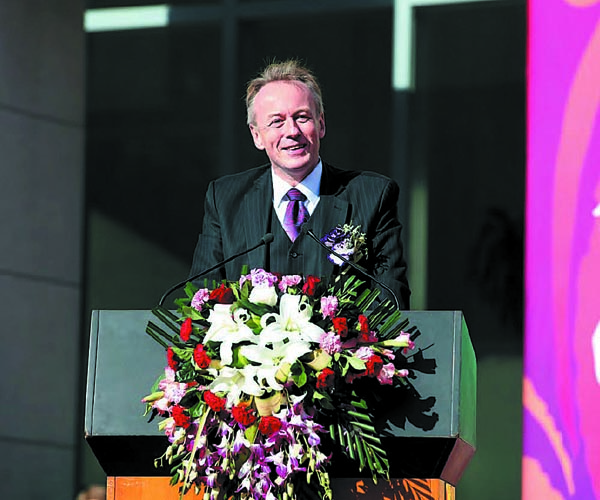Sustainable success


Ragnar, who is special adviser to the green project in China, says it is notable that Sinopec, one of the largest oil and petrochemical companies in the world, decided to join hands with an Icelandic company in developing renewable energy.
The Chinese "approached Iceland and expressed willingness to learn from Iceland's experience on geothermal utilization", he says.
China holds huge potential for developing renewable energy, accounting for more than 7 percent of global geothermal resources with medium and low-temperature geothermal resources widely available, according to industry analysis.
The joint venture in China is now the largest professional geothermal district heating company in the world, providing winter heating in many residential areas in at least seven provinces and areas and serving more than 300,000 households. Including schools, hospitals and commercial buildings, the company boasts about 2 million users, altogether helping to reduce CO2 emissions of 13 million tons. It also records heating capacity of 50 million square meters, through 750 wells and 1,200 kilometers of pipelines. The joint venture and size of its heating areas are growing at up to 30 percent a year, Ragnar says.
The geothermal partnership itself demonstrates Chinese priorities in sustainable development of its economy under the leadership of the Communist Party of China, which marks its centenary this year, he says.
The country's prescient switch to renewable energy for sustainable development is consistent with the CPC's main principles that have always encompassed equality, effective modernization and improving the lives of the people, he says.
Ragnar entered the foreign service of Iceland in 1995, when Iceland established its embassy in Beijing. He took leave from the Icelandic foreign service in 2018 for a PhD program in political science at Peking University after serving many years as the deputy head of missions of the embassy of Iceland in Beijing and Tokyo, and representing Iceland at various international venues on sustainable development when he was based in Iceland.
He is also a scholar of Chinese philosophy and one of the first foreign students to graduate from Peking University in the 1970s. His numerous books include one on the modern and contemporary history of China in Icelandic, and Icelandic translations of The Analects of Confucius and works of Laozi.




































